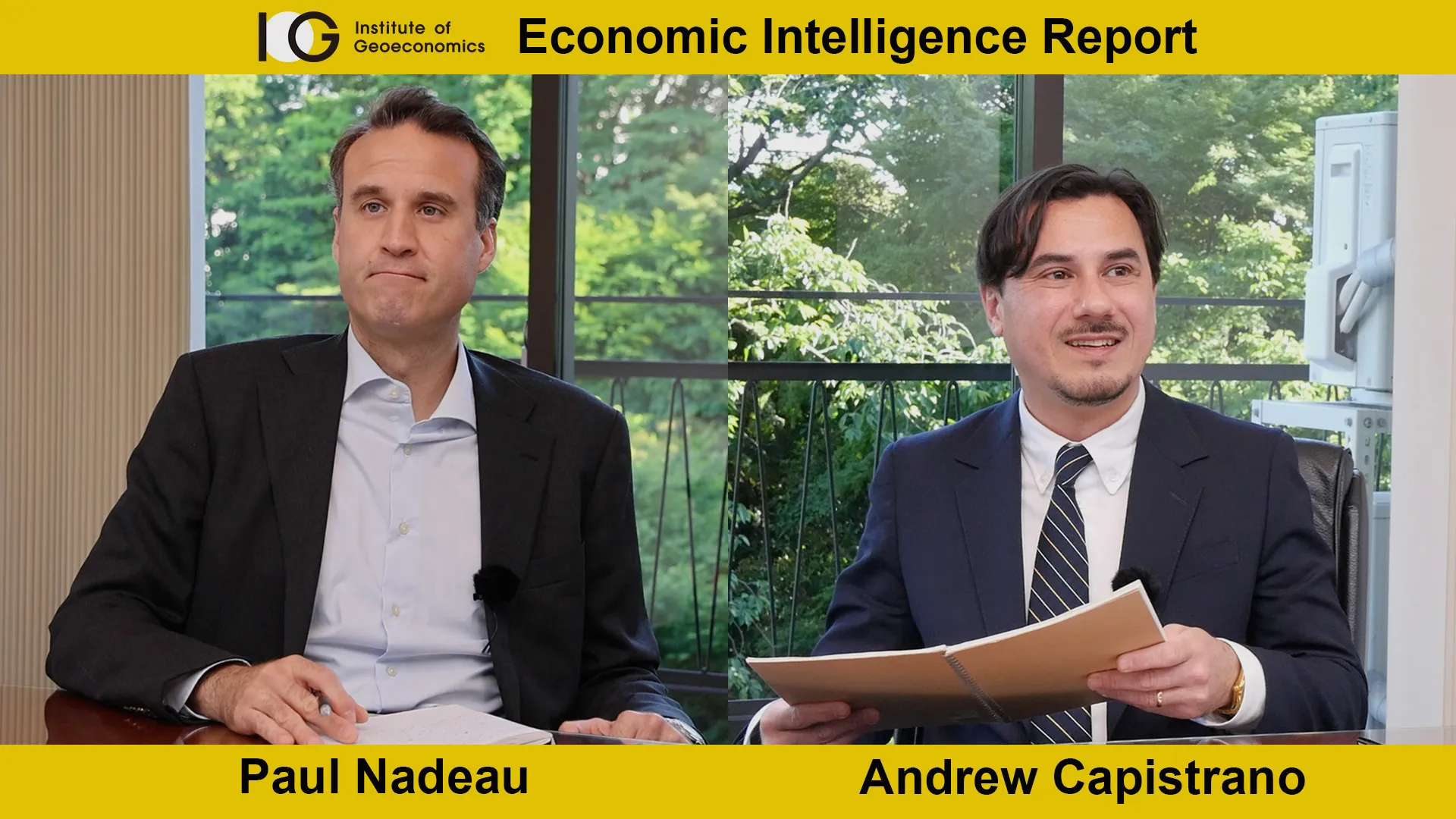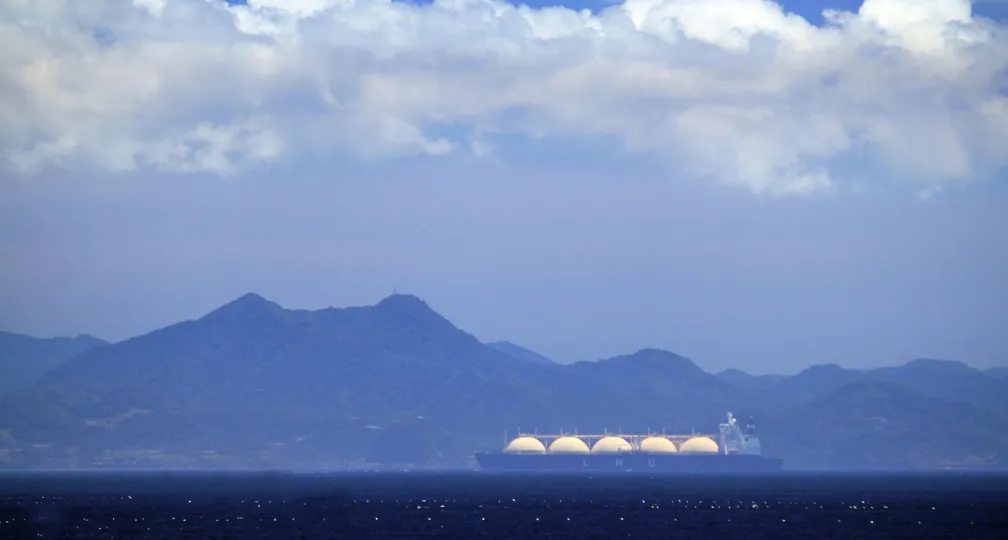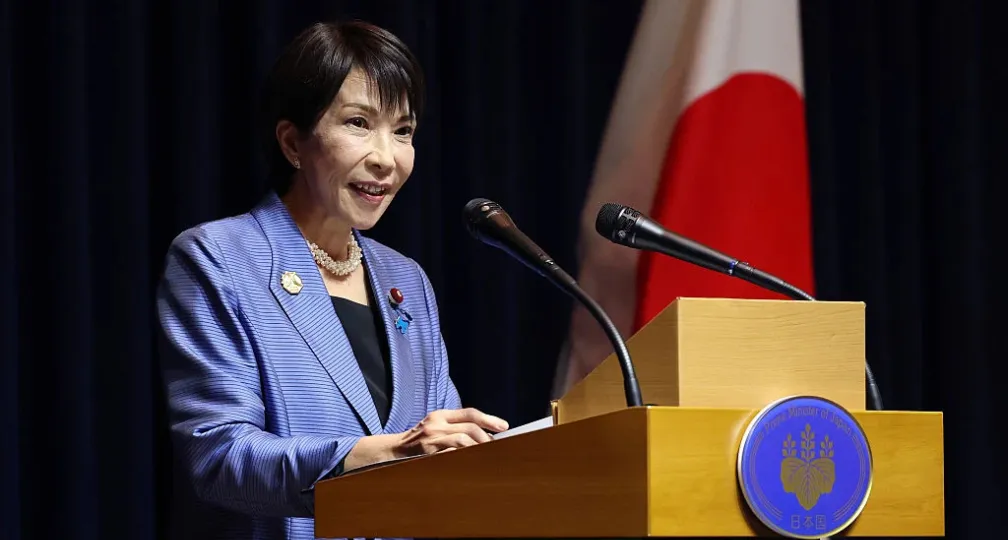IOG Economic Intelligence Report (Vol. 2 No. 22)

The latest regulatory developments on economic security & geoeconomics
Biden Administration Announces New Rules for EV Purchases: On Friday December 1, the Biden administration announced new rules that will prohibit purchasers of electric vehicles (EVs) from qualifying for a $7500 tax credit provided under the Inflation Reduction Act (IRA). Under the new rules, EVs will be disqualified if they contain battery materials originating in a “foreign entity of concern”, specifically parts produced or 25 percent of board seats produced in such an entity. “Foreign entities of concern” include China, Iran, North Korea, and Russia. It appears that the goal of the revision is to encourage the development of supply chains in the United States and away from China, who has been making sourcing agreements with firms in Morocco and South Korea in advance of the Biden administration’s decision.
The rules will include a two-year phase-in for enforcement of some battery powders that may be difficult to trace, following concerns from automakers and EV developers. The announced rules, particularly the various phase-ins, drew opposition from Republican Mike Gallagher who said “Treasury’s naive new regulations would open the floodgates for American tax dollars to flow to Chinese companies complicit in trade violations and forced labor abuses” and from Democrat Joe Manchin who said that “This administration is, yet again, trying to find workarounds and delays that leave the door wide open for China to benefit off the backs of American taxpayers.”
U.S. Dairy Industry Faces Setback in USMCA: A three-member panel organized under the provisions of the U.S.-Canada-Mexico Agreement (USMCA) rejected a U.S. complaint that Canada unfairly restricts its dairy imports. The complaint argued that Canada’s revised rules for its system of tariff rate quotas (TRQs) to limit foreign dairy imports prevented importers, retailers, and food service operators gaining access to the Canadian dairy market. The decision has sparked outrage in the U.S. Congress and among dairy industry groups, while U.S. Trade Representative Katherine Tai expressed “disappointment” with the decision. This was the second investigation into Canada’s system of dairy TRQs, and an earlier panel in 2021 found that Canada was not fulfilling its obligations. New Zealand has also challenged Canada’s TRQs under the provisions of the Comprehensive and Progressive Trans-Pacific Partnership (CPTPP), and the panel subsequently found that Canada’s TRQs are giving preferential access to domestic producers.
Trade Policy & COP28: A report from the World Trade Organization has called for a 10-point set of Trade Policy Tools for Climate Action in the lead-up to the COP28 Summit. The proposal calls on member economies to realign their tariff schedules to encourage trade in environmentally-friendly goods in order to help combat climate change.
The Biden Administration Turns to the DPA: The Biden administration appears set to rely on the Defense Production Act to expand domestic production of medicines. The DPA was passed in 1950 with the goal of streamlining domestic defense production during the Korean War and was last used in 2021 to expand the availability of ventilators and other protective medical equipment during the COVID-19 pandemic. In this case, the Biden administration is using the act to address supply chain issues that it believes are driving up the price of certain medicines as the administration has identified inflation and consumer prices as a critical challenge to its 2024 reelection effort.
U.S. Falling Behind in the Arms Race?: Politico reported that a draft of the first-ever National Defense Industrial Strategy produced by the U.S. Department of Defense argues that the United States “does not possess the capacity, capability, responsiveness, or resilience required to satisfy the full range of military production needs at speed and scale.” The document will look at what is needed to improve defense production and maintain competitiveness, as well as how the Defense Department can better tap into the innovations of small firms.
Analysis: Learning the Wrong Lessons of Trade Liberalization
If there’s a single reason why the United States has turned away from trade liberalization, it’s the so-called “China Shock”. The argument is that opening up to trade with China through permanent normalized trade relations in 2000 resulted in a flood of cheaply produced products that U.S. manufacturers couldn’t compete with, while firms offshored jobs to China to take advantage of lower labor costs. It’s one of the few issues that finds agreement in U.S. politics, with Senator Bernie Sanders claiming 50,000 U.S. jobs lost to China in his Senate floor speeches and Senator Marco Rubio accuses trade with China for reducing U.S. manufacturing jobs by 33 percent. When National Security Advisor Jake Sullivan explained why the United States had to end the old model of trade liberalization, he cited the job losses in manufacturing that resulted from more affordable Chinese imports undercutting American-made products.
The problem is that the logic doesn’t entirely hold up. If it was only a question of opening up trade with China, then most every country that trades with China would have a similar experience as the United States – but in fact, many countries did not experience similar patterns of job loss and some saw their economies even grown rather than shrink. Japan’s case is a revealing example: even though it was more exposed to trade with China and even though Japan’s trade with China increased more than that of the United States following the WTO ascension, jobs in Japan’s manufacturing sector actually increased rather than declined.
One reason for the difference is the nature of goods imported from China – in Japan’s case, the surge of imports from China was mainly in intermediate goods, or goods used to produce a final good along an international supply chain, while imports to the United States were finished final products, especially textiles which experienced the highest surge of imports and the greatest number of jobs lost. While intermediate goods will be re-exported once the stage of manufacture in a given country is finished and moved on to the next stage, imports of final products will compete with domestically-made final products – or put differently, importing intermediate goods can stimulate employment while importing finished goods replaces the domestic producers and their jobs.
This relates to the second reason for why the China Shock was so acute for the United States. Most countries provide trade adjustment programs for workers whose jobs have been displaced by trade, and these programs effectively represent a sort of bargain between the government and workers: governments will liberalize their market access but provide workers with assistance programs to endure economic disruptions and periods of readjustment. This is important because workers whose jobs are lost to trade are especially precarious – they tend to be older, have less education, and fewer transferable skills, making it especially challenging for them to find new employment. In the European Union, active labor market policies like unemployment benefits, retraining programs, and more have been shown to have the strongest effects on preventing lost income due to job loss. Other studies have shown that specifically institutionalized wage ceilings and vocational training, have significant impacts on the reallocation of revenue following liberalization.
In the United States, these programs are particularly weak. In evaluating the experience of Trade Adjustment Assistance, the main adjustment program for trade-impacted job loss in the United States, the U.S. Department of Labor, which administers the program, found that the net benefits of trade adjustment programs were negative. Without meaningful institutional supports and without coordination on wages, jobs and wages move almost entirely due to market forces, accentuating the shocks like job loss and wage suppression. While there is no disputing that the U.S. economy experienced a “China shock”, its outcome was not foreordained but instead mediated by domestic labor institutions which made its impact on U.S. workers more severe.
As a result, it’s neither a surprise that Senator Sherrod Brown, a long-time trade skeptic, would express concerns about the Indo-Pacific Economic Framework (IPEF) related to the idea that labor practices in foreign economies might undermine U.S. workers, nor is it a complete surprise that election worries would cause the Biden administration would take his arguments seriously enough to delay the agreement indefinitely. Domestic politics are never far from the minds of decision makers even as they work on the international stage, and the Biden administration seems particularly spooked given the narrow (but early) polls for next year’s presidential election and given Senator Brown’s position as a Democrat in a state that voted for Trump in the last two elections.
What’s disheartening is that the lesson that each has taken from the experience of liberalizing trade with China is to duck away from economic engagement rather than to try to strengthen the programs that help workers ride through the dislocations. By neither engaging in further liberalization nor by strengthening the programs that are supposed to help workers ride out dislocations due to trade, everyone is worse off – U.S. workers, by foregoing the higher-paid, higher-skilled jobs that come with trade; U.S. consumers, by having to pay more for goods entering the country; U.S. partners, by continuing to have the United States at arm’s length from international economic architecture; foreign workers, because of the United States forgoing the potential leverage of market access to secure enduring improvements for labor conditions; and U.S. strategy in the Indo Pacific, by failing to develop a framework for regional engagement beyond defense. It’s an unnecessary situation with serious impacts on U.S. strategy.
Disclaimer: The views expressed in this IOG Economic Intelligence Report do not necessarily reflect those of the API, the Institute of Geoeconomics (IOG) or any other organizations to which the author belongs.
API/IOG English Newsletter
Edited by Paul Nadeau, the newsletter will monthly keep up to date on geoeconomic agenda, IOG Intelligencce report, geoeconomics briefings, IOG geoeconomic insights, new publications, events, research activities, media coverage, and more.


Visiting Research Fellow
Paul Nadeau is an adjunct assistant professor at Temple University's Japan campus, co-founder & editor of Tokyo Review, and an adjunct fellow with the Scholl Chair in International Business at the Center for Strategic and International Studies (CSIS). He was previously a private secretary with the Japanese Diet and as a member of the foreign affairs and trade staff of Senator Olympia Snowe. He holds a B.A. from the George Washington University, an M.A. in law and diplomacy from the Fletcher School at Tufts University, and a PhD from the University of Tokyo's Graduate School of Public Policy. His research focuses on the intersection of domestic and international politics, with specific focuses on political partisanship and international trade policy. His commentary has appeared on BBC News, New York Times, Nikkei Asian Review, Japan Times, and more.
View Profile-
 Japan’s Sea Lanes and U.S. LNG: Towards Diversification and Stabilization of the Maritime Transportation Routes2026.02.24
Japan’s Sea Lanes and U.S. LNG: Towards Diversification and Stabilization of the Maritime Transportation Routes2026.02.24 -
 Fed-Treasury Coordination as Economic Security Policy2026.02.13
Fed-Treasury Coordination as Economic Security Policy2026.02.13 -
 What Takaichi’s Snap Election Landslide Means for Japan’s Defense and Fiscal Policy2026.02.13
What Takaichi’s Snap Election Landslide Means for Japan’s Defense and Fiscal Policy2026.02.13 -
 Challenges for Japan During the U.S.-China ‘Truce’2026.02.12
Challenges for Japan During the U.S.-China ‘Truce’2026.02.12 -
 India and EU Sign Mother of All Deals2026.02.09
India and EU Sign Mother of All Deals2026.02.09
 Orbán in the Public Eye: Anti-Ukraine Argument for Delegitimising Brussels2026.02.04
Orbán in the Public Eye: Anti-Ukraine Argument for Delegitimising Brussels2026.02.04 Fed-Treasury Coordination as Economic Security Policy2026.02.13
Fed-Treasury Coordination as Economic Security Policy2026.02.13 When Is a Tariff Threat Not a Tariff Threat?2026.01.29
When Is a Tariff Threat Not a Tariff Threat?2026.01.29 Oil, Debt, and Dollars: The Geoeconomics of Venezuela2026.01.07
Oil, Debt, and Dollars: The Geoeconomics of Venezuela2026.01.07 India and EU Sign Mother of All Deals2026.02.09
India and EU Sign Mother of All Deals2026.02.09














